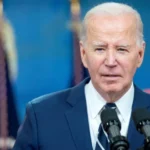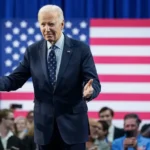
Published February 21, 2023
Two identical bills, one just introduced in the Florida senate and one in the house, would bring dramatic reforms to higher education in the state. The companion bills, S.B. 958, sponsored by state senator Keith Perry, and H.B. 931, sponsored by state representative Spencer Roach, do two big things.
First, the bills would boost campus intellectual diversity by establishing an Office of Public Policy Events. That office would organize, publicize, and record for web-posting a series of debates, panel discussions, and individual lectures that explore competing sides of the most widely discussed public-policy controversies. Imagine campus debates on abortion, immigration, crime, transgenderism, critical race theory, Ukraine policy, inflation, reparations, the role of government in health care, and any number of other controversial issues. Since these debates would take place outside of class, they would not interfere with professors’ academic freedom. Yet they would introduce points of view that are not typically represented on campus. Unlike a campus free-speech bill, which (rightly) is put in place to prevent infringements, this bill would have an immediately visible effect on the campus atmosphere.
Second, the companion bills would stop Florida’s universities from forcing applicants for teaching jobs, promotions, or tenure to produce statements outlining their commitment to “diversity, equity, and inclusion.” Diversity statements have become modern versions of the ideological loyalty oaths of the 1950s. In practice, diversity statements allow universities to purge themselves of faculty who decline to embrace the woke agenda.
The model Campus Intellectual Diversity Act, which I published with the National Association of Scholars, is the inspiration for the first key provision of these companion bills. The model End Political Litmus Tests in Education Act, co-published by North Carolina’s Martin Center for Academic Renewal and Arizona’s Goldwater Institute (and of which I am a co-author), is the inspiration for the second key provision of the companion bills. I announced the model Campus Intellectual Diversity Act and made the case for it here at NRO. I also announced the model End Political Litmus Tests in Education Act and made the case for it here at NRO.
There could hardly be a better venue to float bold higher-education reform than Florida’s legislature. Prospects for passage seem good. Each of the two key features of this bill would make for a major change in state institutions of higher education. If these reforms become law in Florida, we might swiftly see moves to expand them nationally. Stay tuned. Florida’s ambitious legislative agenda for campus reform begins to reveal itself. There is likely more to come.
Stanley Kurtz is a Senior Fellow at the Ethics and Public Policy Center. On a wide range of issues, from K-12 and higher education reform, to the challenges of democratization abroad, to urban-suburban policies, to the shaping of the American left’s agenda, Mr. Kurtz is a key contributor to American public debates. Mr. Kurtz has written on these and other issues for various journals, particularly National Review Online (where he is a contributing editor).
Stanley Kurtz is a Senior Fellow at the Ethics and Public Policy Center. Beyond his work with Education and American Ideals, Mr. Kurtz is a key contributor to American public debates on a wide range of issues from K–12 and higher education reform, to the challenges of democratization abroad, to urban-suburban policies, to the shaping of the American left’s agenda. Mr. Kurtz has written on these and other issues for various journals, particularly National Review Online (where he is a contributing editor).












